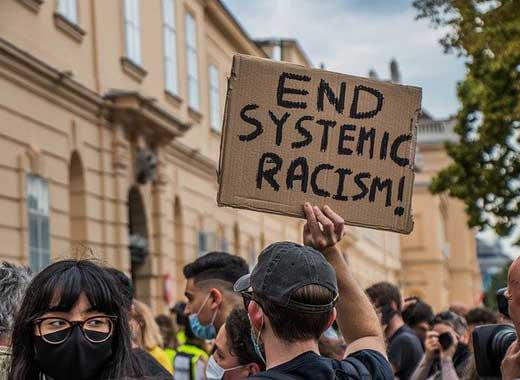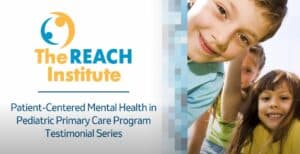Your patients need you to talk about race
- June 23, 2020
- The REACH Institute
- Anti-racism, Child mental health Culturally responsive,

“The first thing clinicians need to know about racism and discrimination is how important it is to talk about it.”
James Rodriguez, PhD, LCSW, is on the faculty of the REACH course Working with Challenging Patients and Families: Maximizing Your Clinical Effectiveness. He has also served as a cultural consultant for the Patient-Centered Mental Health in Pediatric Primary Care program. We asked him for advice on helping children and families deal with today’s news about violence against people of color and the resulting protests.
“Not talking about race sends a message that is not healthy,” Dr. Rodriguez said. “Frankly, on a societal level, it’s brought us to where we are today. We will continue to have to deal with racism and discrimination until we have those conversations — in our families, in our communities, in workplaces, and in our clinical relationships.”
For individual children and teens of color, treating race as a taboo subject simply leaves them to process the racism they encounter on their own, with no support. Open, honest, and effective conversations about race and racism are crucial to young people’s mental health.
Dr. Rodriguez acknowledged that conversations about race can be difficult, especially (but not only) when there are racial differences between clinicians and their patients.
“The research around ethnic matches between providers and patients is not clear cut,” said Dr. Rodriguez. “Some studies show that racial matching helps the clinical relationship. Others suggest that it’s not as meaningful as we think. Factors like the provider’s mindset and world view may be more important.”
Whether or not providers share the racial and ethnic background of their patients, Dr. Rodriguez insisted, communication is vital. Open conversations in which providers listen as much as they talk promote better clinical relationships.
Once the conversation builds trust, providers can begin to help with the very real mental health issues young patients of color can suffer because of their experiences of racism and discrimination.
Those experiences may start early. Dr. Rodriguez cited research showing that three-month-old babies can distinguish that a person is of a different race from their main caregivers. By age 4, children can be aware that they have been treated differently from others because of their race.
“There’s evidence that covert forms of racism can be more harmful over the long haul than more overt forms,” he said.
Mental health deteriorates when children repeatedly experience microaggression. For example, black young people are routinely followed by security guards when they enter stores. This experience of microaggression, when repeated, turns into a form of chronic stress. Research indicates that continued exposure to this stress follows children into adulthood, where it can lead to significant mental health issues.
Dr. Rodriguez described an experience from his years in South Central Los Angeles. “I had a group of young black men, high school students,” he said. “I asked how many of them had ever been stopped by the police. Every one of them raised their hand.”
Such encounters with hostile law enforcement officers can’t help but harm young people’s mental health. Experiences of racism and discrimination can contribute to feelings ranging from grief, anger, and anxiety to low self-esteem and depression.
Whether racism is the central or a contributing cause of a patient’s mental health issue, pediatric providers owe it to the patient and the family to address the problem with sensitivity and openness. “We can’t leave it to young people to process those experiences on their own,” said Dr. Rodriguez.
We’ll share Dr. Rodriguez’s insights on how to address racism with patients and caregivers in next week’s email. He suggests an interview format to uncover how patients’ culture affects their perception of the issues that trouble them and offers tips on sensitive responses to patients’ and caregivers’ concerns about racism and discrimination.
Resources
The American Academy of Pediatricians 2018 policy statement The Impact of Racism on Child and Adolescent Health summarizes the research and outlines ways pediatricians can address the effects of racism.
A June 1 CNN article offers a quick compendium of the reactions of various medical associations to police violence and racism, including their takes on the effects on the mental health of black children and adults.
Activists Sarah Sophie Flicker and Alyssa Klein compiled this list of anti-racism resources for white people.
Categories
- ADHD
- Anti-racism
- Anxiety
- Assessment & screening
- Autism
- Child mental health
- Coding
- Cognitive behavioral therapy
- College transition
- Culturally responsive
- Depression
- Eating disorders
- Foster care
- Grief
- High-risk children & youth
- LGBTQIA
- Medication
- Parents
- Patient communication
- Pediatric primary care
- School refusal
- Sleep disorders
- Suicide
- Trauma
- Show All Categories
Register for courses
“The REACH Institute Video Testimonial: Grizelda  ”
”
